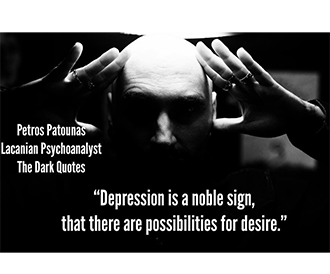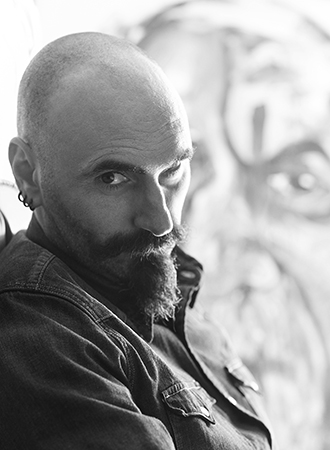 Symptoms treated by Psychoanalysis: Life.
Symptoms treated by Psychoanalysis: Life.
Discontents- that is a symptom, which makes a subject bear an incomparable weight, in one way or another. Unique individuals have unique ways of discontent although the outcome- filtered in the cultural discourse- may appear the same in the violent forms of grouping, turning what ought to be private into something indiscriminate out of context with one’s personal experience as if the subject itself were the symptom to a brilliant theory of an illness. In Lacanian orientation each voice is inimitable, and each symptom is a subject, an outcome of the body’s exposure to language beyond the general formulations of cause and effect- this is the affect of a cause, which, in time, has shaped the body into a discursive one: in fact, not one but another one.
What is the Oedipus myth, if not the structuring of the question “What does it mean to be a human?” a question that outshines the illuminations of both biology and cognition- in fact, and, to be defined: it is a different biology: for biology means the word of life; if it is more apposite, life speaks. Although the word analysis relates to destruction, which is, breaking down into the smallest agencies, it is apropos to describe it as creation, a formation, one that Lacan utter as the direction for the formation of analysts as well, not in mass production but as one by one. In this manner each one’s symptom exists- beyond the statistical silence of individuality, but one by one, dissimilar.
The only certainty being one’s anxieties, manifested through a number of symptoms, only to be categorized into a group of syndromes and such we tend to become: yes, if this is the declaration of a manifesto equal to the ethical guiding principles of a slave. Subjects’ symptoms are the results of a discourse that has marked the entrance of their bodies within the social discourse, and the rebellion towards the demand of subjection, not subjectivity, is the topology of the indication of the symptom, which is, faithfully to the steps of the act, the instant of the subject’s next performance. The entrance into analysis, or, better stated, the crossing towards this path happens not because of the violence of the symptom but because of the symptom’s malfunction, or, if it is favored, the subtraction of enjoyment from the indication of agony, with gratification- one it static: panic attacks, anorexia, boredom, repetition of failed relationships and incidents- no, these do not need cognition because it is their cognition that brings about their failure, doomed into a system of mastery between ideal goal and disillusionment.
We have rushed too much, so much that we have forgotten that speech, as much as in the myth of Oedipus, has been the marking and seminal reference to one’s destiny, written yes but not ours and certainly not the only form of writing- for, when analysand read they actually sculpt: a novel truth. The hastening towards an ideal led to the loss of a place, not a place to bring to a standstill, but, on the contrary, one from where we choose our departures. When a subject reaches that elastic point of departure, psychoanalysis is, does not become, only a moment. No more than an act.

